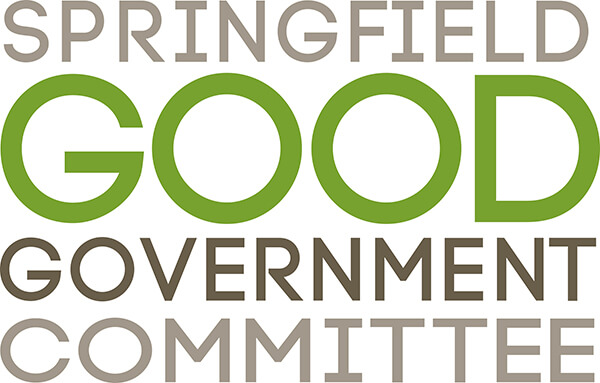Platform
Good Government General Platform Statements (reaffirmed by SGGC 2023)
- Economic Development is a Top Priority: Job Creation, Small Business, Pro-Growth Culture, Transportation; Quality of Life, Quality of Place
- Advocate for policies, initiatives, etc., which encourage business growth/expansion and job creation, including the use of economic development incentives if and when appropriate.
- There is a relationship between job growth and affordability of housing. Homes must be affordable for those filling new jobs to live in fairly close proximity to employment (effective tool against sprawl also.)
- Understand importance of small business to the regional economy; advocate for policies/less regulation/pro-business climate.
- Acknowledge that growth is going to occur and plan accordingly; recognition that growth makes a positive contribution that will yield tremendous benefits for future generations. Approach to growth should focus on allowing the market to work properly and closely scrutinizing use of any growth management tools (such as urban growth boundaries) which could negatively impact affordability of commercial/residential property, and the cost of doing business. That means developing a plan that will provide for a good mix of housing in various price ranges and the timely construction of infrastructure improvements – roads and schools – that will accommodate the county or city’s anticipated growth in an orderly manner, funded in a fair, broad-based way—not by impact fees or similar methods that unfairly target developers and the construction industry and negatively impact affordability.
- Focus on transportation planning and funding is a high priority and important to remaining an economic hub for the region.
- It is important to maintain and optimize the natural beauty of the Ozarks in partnership with business and industry. Offering incentives for and rewarding environmental stewardship/green practices in business, government, and development is more effective than mandating regulation. City, County, non-profits, etc., must plan and work together to address emerging water issues and to encourage/reward innovation and conservation.
- Support for quality of place efforts and initiatives will help ensure Springfield is competitive in talent recruitment and retention efforts.
- Growth is key to our economic future and ensuring the culture of the City of Springfield is “open for business” will encourage that growth. Additionally, increased clarity and consistency around zoning policies will result in certainty that encourages continued investment within the City.
- The public and private sectors should work collaboratively to support economic growth. Collaboration through public/private partnerships is critical to Springfield’s economic development future.
- Education/Workforce Development are Vital to Prosperity
- A strong public education system is vital to our city’s continued economic development and prosperity. Our system must do a better job of preparing young people to identify their potential professional skills and goals. It must connect them earlier with the full array of career opportunities, especially construction and manufacturing. This is critical to ensuring a properly trained workforce.
- We must keep our higher education institutions strong and well-networked with one another, the business community and public education.
- Schools that perform well are integral to attracting new industry/job growth, expanding existing business, keeping housing market strong, keeping young families and professionals in the community/not losing population.
- Principles of Governing: Necessary for Effective, Responsible Leadership
- Motivated by desire for good government – not personal or narrow agenda.
- There must be cooperation, communication between political subdivisions such as City and County, surrounding communities, etc. It is important not to make decisions in isolation but to see the impact on region.
- Local control: as much as possible, it is important and desirable for our City to control its destiny and to have the flexibility and freedom of making decisions at the local level, rather than mandates from state, or federal levels, i.e., power supply, building codes, etc.
- A Seat at the Table: any time decisions are made which affect a particular segment of the community, representatives of that industry or sector should be invited to the table for dialogue and input. Their input should be used as meaningful direction in the process of developing good public policy.
- Regulation/Administrative Efficiency: whenever possible, it is generally desirable to streamline processes/remove duplication of administrative function (Health Dept. example,) eliminate bureaucratic red-tape, reduce cost of compliance for business/citizens.
- Accountability/Sunsets: important to communicate precisely what any proposed tax/fee increases will be used for; include a sunset to ensure review of necessity and effectiveness; document use as promised.
- Public Safety
- Prioritizing public safety is key to our future. A safe community is a prosperous community and addressing crime supports economic growth and job creation. Adequate resources to fund public safety should be a budget priority.

